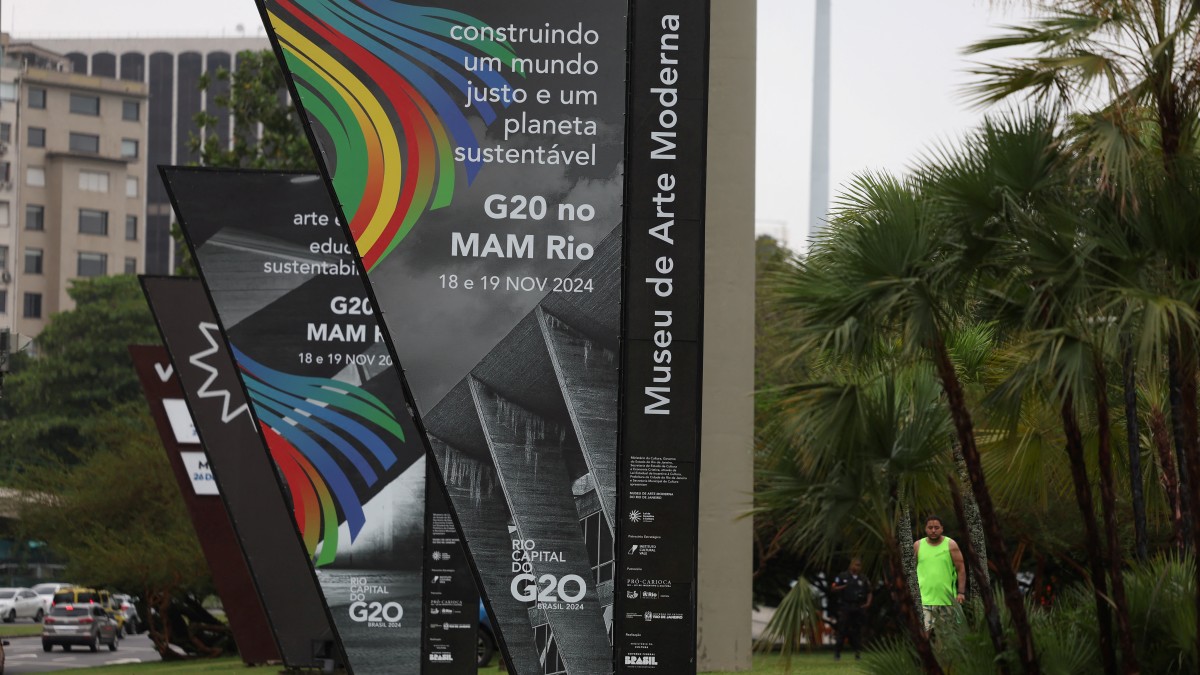Global leaders are gathering today in Brazil for the 19th G20 Summit in Rio de Janeiro.
The two-day summit is the main forum for international economic and financial cooperation — the two areas increasingly tested by today’s shifting geopolitics.
Here is a primer on the G20 and what it does:
What is G20?
The Group of Twenty brings together the world’s biggest economies.
It plays an important role in shaping and strengthening global architecture and governance on all major international economic issues.
The G20 comprises 19 nations: Argentina, Australia, Brazil, Britain, Canada, China, France, Germany, India, Indonesia, Italy, Japan, Mexico, Russia, Saudi Arabia, South Africa, South Korea, Turkey, and the United States.
Despite its name, the G20 today counts 21 members.
Together, they represent 65 per cent of the world population, 79 per cent of world trade and 85 per cent of global GDP.
The European Union has also long been a member, with the African Union admitted last year.
How did the G20 come into being?
The formation of the G20 is forged in crisis.
It was conceived in 1999, in response to the Asian financial crisis two years prior that shook the global system.
The G20 was initially intended to serve as a forum for central bank chiefs and finance ministers to coordinate.
It was elevated to leader-level in 2008 — after another global financial crisis — so heads of state and government could meet annually on international economic issues.
Impact Shorts
More ShortsThere are additional side forums at the event where representatives talk about issues like social justice, health, culture, tourism, agriculture, and fighting corruption.
How does G20 function?
There is no permanent leader of the G20.
Every year, a nation is chosen to serve as the forum’s president. The G20 meeting is hosted by the nation holding the presidency, which also sets the agenda.
While Indonesia hosted the summit in 2022, India did it last year.
Brazil is hosting the summit this year.
Next year’s summit will be held in South Africa.
What’s the agenda of G20 Brazil?
Brazil has prioritised fighting hunger, poverty, and inequality, along with sustainable development and reforming global governance.
To do that, it is hosting a G20 Social Forum a few days prior to the main summit on November 18–19, which aims to increase the representation of civil society in the talks between the countries.
The G20 summit is taking place in Rio de Janeiro and will see US President Joe Biden attend alongside China’s Xi Jinping and other leaders.
The Indian Prime Minister will also participate in the G20 Summit in Brazil, as New Delhi is part of the G20 troika along with Brazil.
He will present India’s stance on a number of global issues and expand on the outcomes of the G20 New Delhi Leaders’ Declaration and Voice of the Global South Summits, which India hosted two years ago. He is also anticipated to meet with a number of leaders on the sidelines.
Last month, Russian President Vladimir Putin declared that he would not be visiting Brazil.
He said his presence would “wreck” the summit but insisted an International Criminal Court arrest warrant against him for Russia’s actions in Ukraine was not a factor in his decision. Foreign Minister Sergei Lavrov is going in his place.
What are the achievements of the G20?
Since its inception, the G20 has worked to encourage the formation of consensus on international issues.
It was crucial in guiding the world out of the 2008–2010 global financial crisis. The G20 is credited by many analysts for acting quickly.
Former Council on Foreign Relations (CFR) fellow Stewart Patrick said that the group “rescued a global financial system in free fall."
The G20 countries rejected trade barriers, adopted extensive banking system reforms, and committed to invest $4 trillion to boost their economies in 2008 and 2009.
The G20 has committed to problems that could be categorised as part of the “social agenda” since the economic crisis.
In 2014, in Brisbane, it pledged to reduce the gap between men and women in the workforce by 25 per cent by 2025.
During the COVID-19 pandemic, the G20 undertook many measures to support economies and supply chains. It also lent its support to international organisations — the World Health Organization (WHO) and the International Monetary Fund (IMF).
The issue of climate change has also been a focus of the G20.
Was there any past friction in G20 Summit?
Russia’s war in Ukraine has caused a split among participating nations in recent G20s.
The traditional “family photo” of the leaders standing together in a gesture of unity had to be abandoned at the last two summits, in Bali in 2022 and Delhi in 2023, due to different opinions on Moscow and how best to sum up the conflict.
Xi also upbraided Canadian Prime Minister Justin Trudeau at the Bali summit after details of talks they held were leaked to the media.
With inputs from AFP


)

)
)
)
)
)
)
)
)



